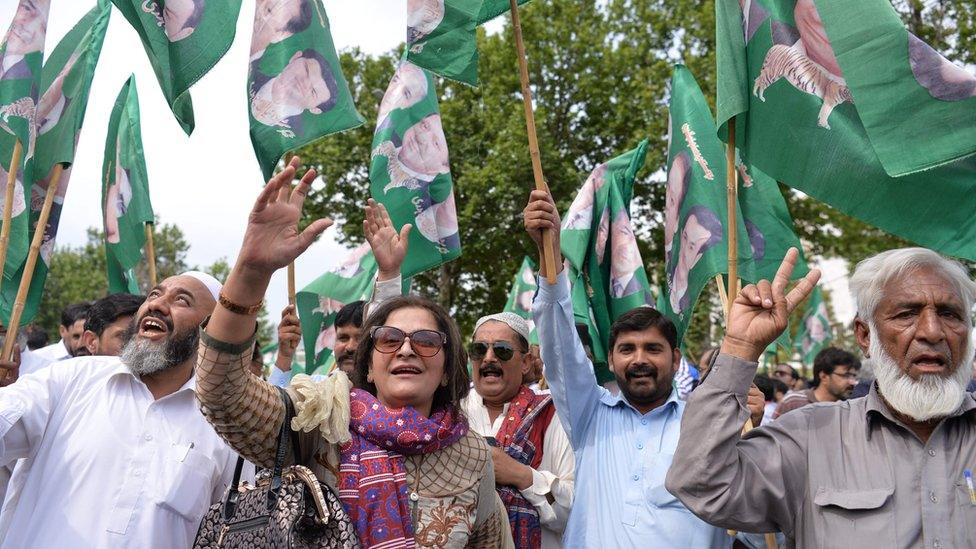Does this court judgement make any sense?
- Published

Did a High Court judge in Himachal Pradesh write his judgment with thesaurus in hand?
There are few professions that allow one to be as verbose as a judge. Sometimes, this freedom can result in powerful judgements that weave brilliant legal interpretation with sparkling prose.
At other times, legal judgements are so complicated that they make little sense to normal people.
In rare times, as happened recently in India, they even bewilder lawyers directly involved in the case.
A bemused Supreme Court bench sent back a convoluted judgement from a high court judge in the state of Himachal Pradesh to be re-drafted because it was simply unintelligible.
"We will have to set it aside because one cannot understand this," MB Lokur and Deepak Gupta were quoted by the Hindustan Times as saying, external on 14 April.
And what was so complicated about the judgement, external, which ruled in favour of a tenant locked in a years-long battle with a landlord?
Here is an extract:

"However, the learned counsel...cannot derive the fullest succour from the aforesaid acquiescence... given its sinew suffering partial dissipation from an imminent display occurring in the impugned pronouncement hereat wherewithin unravelments are held qua the rendition recorded by the learned Rent Controller..."

And more:

"The summum bonum of the aforesaid discussion is that all the aforesaid material which existed before the learned Executing Court standing slighted besides their impact standing untenably undermined by him whereupon the ensuing sequel therefrom is of the learned Executing Court while pronouncing its impugned rendition overlooking the relevant and germane evidence besides its not appreciating its worth. Consequently, the order impugned suffers from a gross absurdity and perversity of misappreciation of material on record."

The lawyer representing the tenant, Aishwarya Bhati, reportedly joked in court that she needed to hire an English professor to understand the convoluted ruling.
'Ridiculous language'
But the UK-based Plain English Campaign (PEC) said it had seen similar language deployed in the past by judges, though the wording in this case was "preposterously overblown".
"There is simply no reason or excuse for it," the PEC's Lee Monks told the BBC. "We've often heard the defence that these are 'legal terms' but that's very often a cop-out.
"The idea that something like '...fullest succour from the aforesaid acquiescence' is at all necessary is ridiculous."
While that may be true, judges in the Indian sub-continent, and elsewhere, clearly enjoy the freedom they have to show off their verbal dexterity and cultural knowledge in judgements - though they usually make more sense.
On Thursday, a judgement from Pakistan's Supreme Court ruling that there was insufficient evidence of corruption to remove Nawaz Sharif from the role of prime minister began by mentioning Mario Puzo's 1969 novel The Godfather, before quoting 19th Century novelist Honore de Balzac, external, in the original French.

Supporters of Nawaz Sharif didn't mind the wordy judgment
Back in India, a 268-page Supreme Court judgement last year from Justice Dipak Misra was particularly verbose, external in dismissing a challenge to the constitutionality of the criminal offence of defamation brought by Subramanian Swamy, a politician.
The judge wrote, in a sentence described, external by the journalist and former law lecturer Tunku Varadarajan as "among the worst sentences I've encountered in all my years of reading legal materials":

"This batch of writ petitions preferred under Article 32 of the Constitution of India exposits cavil in its quintessential conceptuality and percipient discord between venerated and exalted right of freedom of speech and expression of an individual, exploring manifold and multilayered, limitless, unbounded and unfettered spectrums and the controls, restrictions and constrictions, under the assumed power of 'reasonableness' ingrained in the statutory provisions relating to criminal law to reviver and uphold one's reputation""

But Indian judges, with few exceptions, "love purple prose which they mistake to be or believe to be Shakespearean English", says journalist Binoo K John, who wrote a book - Entry from Backside Only: Hazaar Fundaas of Indian English - about the peculiar use of English in India.
"So considering the long history of such prose, it is not all all embarrassing in India," he told the BBC.
Meanwhile, at least one High Court judge in England has listened to calls to simplify the language used in judgements.
Justice Peter Jackson published a simply-worded ruling last year, external in a family court case so it could be understood by the children affected by it.
He even used an emoji.
- Published27 June 2014
.jpg)